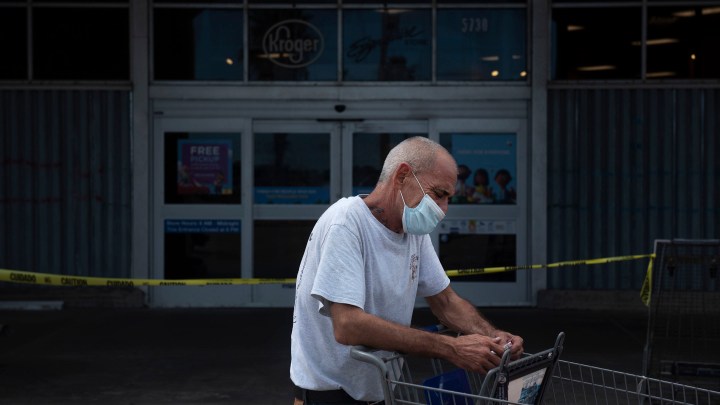
Kroger, offering antibody tests, may be well placed to distribute a vaccine
Kroger, offering antibody tests, may be well placed to distribute a vaccine

Kroger reported third-quarter results Thursday morning, beating profit estimates and falling just short of sales expectations. The grocery chain, which also owns Ralphs, Harris Teeter, Fred Meyer and many more, is lately offering rapid antibody testing at its pharmacies nationwide. Antibody tests allows people to find out if they have had COVID-19 in the recent past.
The line between grocery stores and health care is getting finer and may blur further as vaccines reach the market. Millions of Americans are spending a lot more time at home, which includes a lot more time eating at home, which means grocery stores are benefiting.
“Especially as restaurants have been restricted or, in many cases, closed,” said Zain Akbari, an equity analyst at Morningstar. “As a result, Kroger has seen a significant uptick in its sales in the first and second quarters.”
That’s great for Kroger, said supermarket analyst David Livingston of DJL Research. It’s also not great for Kroger, he said.
“It’s not all rainbows and unicorns just because your sales go up,” Livingston said. “You’ve lost some employees, you’re looking at paying overtime, you’re trying to add employees for the increased sales, you’ve had to prepare your stores for the pandemic.”
It’s perhaps no surprise that Kroger is offering antibody testing at its pharmacies; it’s another way to get people in the door. Health and wellness is already a major part of the chain’s business model.
“Sometimes they’ll do 20% of their total sales just in the pharmacy,” Livingston said.
If consumers associate Kroger with COVID-19 testing, that could pay off when a vaccine rolls out. Greg Portell, with A.T. Kearney’s global consumer practice, said the vaccine — or vaccines — are an opportunity for big retailers in general and grocery chains in particular.
“There have been discussions about grocers and retailers being involved in vaccine distribution,” Portell said. “Obviously they provide lots of points of access, which is important when you talk about vaccine distribution.”
Grocery stores have the ability to transport goods in cold storage already, and some vaccines require very cold storage. And pharmacies, which are sometimes inside grocery stores, already provide flu shots. If people start heading in droves to the grocery store for their vaccines, a retail subsector that was able to succeed as the virus emerged could benefit all over again from its demise.
There’s a lot happening in the world. Through it all, Marketplace is here for you.
You rely on Marketplace to break down the world’s events and tell you how it affects you in a fact-based, approachable way. We rely on your financial support to keep making that possible.
Your donation today powers the independent journalism that you rely on. For just $5/month, you can help sustain Marketplace so we can keep reporting on the things that matter to you.












